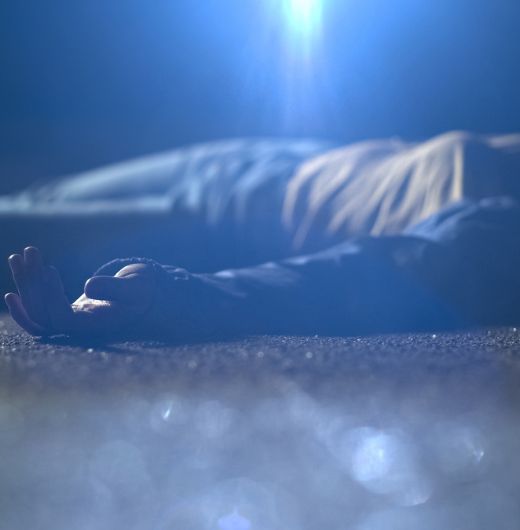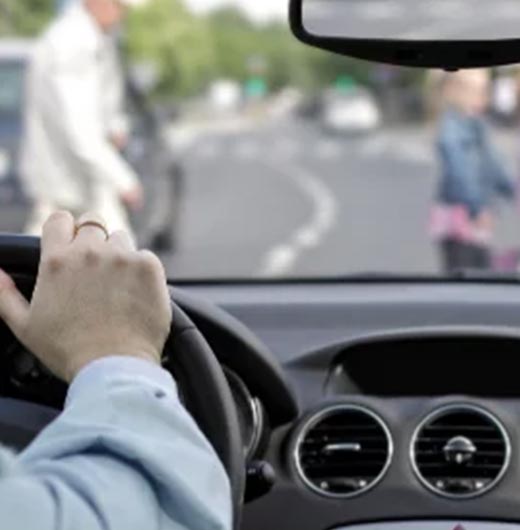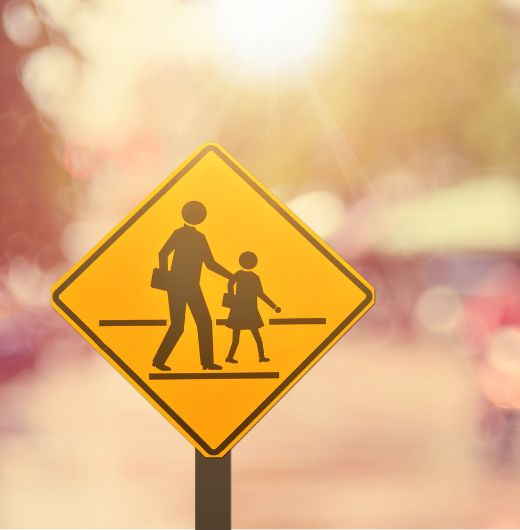Losing someone in a pedestrian accident is life-changing, and Ontario law allows families to seek compensation when a pedestrian is killed by a driver’s negligence. A Hamilton wrongful death lawyer can investigate the collision, preserve key evidence, and protect your family’s financial future. If someone you love was struck and killed, legal guidance is essential to understand your rights and the options available to you.
Pedestrian Fatalities Demand Action — Your Rights Matter.
There’s no doubt that the unexpected death of a loved one, be it a child or adult, is a devastating scenario that nobody prepares for. The emotional suffering is often unbearable. Surviving family members often feel overwhelmed with disbelief, anger and sadness – emotions which can be brutally painful for surviving family members to deal with.
However, losing a loved one because someone else is negligent or careless with their vehicle makes matters much, much worse. Not only are family members suffering from a roller coaster of extreme emotions after the loss of a loved one, but now, loved ones are suffering from the unexpected loss of their loved one in a pedestrian accident that could have been prevented. There will be many, many questions, and your family will want answers – and justice. They will want to know why this pedestrian accident happened, why their loved one was taken from them and how they are expected to move on without the love and support of their deceased family member.
If you have lost a loved one who was hit by a car or truck, you must contact our Hamilton wrongful death lawyers to learn your rights. We are experts in wrongful death law – an area of law that can be extremely complex.

It’s Time for Justice. Start your Wrongful Death Case Today
Contact Us Today
Pedestrian Accident Wrongful Death Law in Ontario
The term “wrongful death” is an American term. In Ontario, wrongful death law is governed by the Family Law Act. The Family Law Act provides the right of the dependence of the deceased to sue in tort, or in other words, file a lawsuit against the person that caused the death of your loved one.
Unlike when somebody is charged criminally for causing the death of someone, a civil lawsuit leads solely to an award of compensation – or money – for family members. If you and your family are successful in your wrongful death lawsuit, a judge or jury will award the responsible party’s insurance company to pay a sum of money to you and your family.
As discussed in detail below, compensation can be for the loss of care guidance and companionship suffered by loved ones, damages for medical bills, funeral costs, economic loss, loss of income for both the deceased and the spouse, housekeeping losses, and damages for the estate.
As your Hamilton wrongful death lawyers serving Ontario, we would gather the evidence and engage in fact-finding, identify the parties responsible for the death of your loved one, file suit for negligence caused by a car accident, truck accident, bicycle accident, or motorcycle accident, complete an investigation, challenge the other side’s defences, try to negotiate a favourable settlement for family members and if that does not work, represent you at a trial by judge or jury.
What is the Process in Bringing a Wrongful Death Claim for a Pedestrian Death?
A wrongful death claim is filed as a civil action in the Superior Court of Justice. The family must prove that the death resulted from someone’s negligence—such as a driver who failed to keep a proper lookout, sped through a crosswalk, or violated traffic rules. Evidence is gathered through police reports, witness statements, expert opinions, and financial documentation to measure both emotional and economic damages. Medical evidence, in certain cases, could be gathered to support non-economic damages.
Our Hamilton lawyers will guide your family through the process, ensures all eligible relatives are included, and pursues compensation on behalf of those who have suffered the loss.
Who can Bring a Wrongful Death Claim?
In Ontario, wrongful death claims are brought under the Family Law Act, and only specific family members are legally entitled to pursue them. The process is straightforward in principle but requires careful legal handling.
Eligible relatives include the deceased’s spouse, children, grandchildren, parents, grandparents, and siblings. Each of these family members may pursue compensation for the losses they personally suffered as a result of the death, including loss of guidance, care, companionship, financial support, and certain expenses.
Find a Pedestrian Wrongful Death Lawyer near me
When a pedestrian accident leaves you injured, finding the right lawyer to handle your case becomes a critical first step toward recovery and compensation. The process requires careful consideration and strategic research to identify a lawyer who possesses both the expertise and dedication your case demands.
Start with Local Searches
Begin your search by focusing on lawyers who practice in your geographic area. Search engines provide a straightforward starting point—search for “pedestrian accident lawyer” combined with your city or region. Local lawyers understand the specific courts, judges, and legal procedures in your jurisdiction, which can significantly benefit your case.
Seek Lawyers with Specific Experience
Not all personal injury lawyers handle pedestrian accident death cases with equal proficiency. Look for lawyers who specifically identify pedestrian accidents as a core practice area. Review their websites to examine case results, areas of focus, and the types of injuries they regularly handle. Lawyers who dedicate substantial portions of their practice to pedestrian accidents bring specialized knowledge about common injury patterns, liability issues, and insurance company tactics specific to these cases.
Verify Credentials and Track Record
Examine each lawyer’s professional credentials, years of experience, and settlement or trial results. Look for lawyers who have successfully recovered significant compensation for pedestrian accident victims. Professional memberships in personal injury law associations and recognition by legal rating organizations can indicate a lawyer’s standing within the legal community.

Have You Lost a Loved One in a Pedestrian Accident?
Don't Delay Contact us Today.
Read Client Reviews and Testimonials
Former clients’ experiences provide valuable insights into how a lawyer handles cases and treats clients. Read Google reviews qand other reviews on multiple platforms to gain a balanced perspective. Pay attention to comments about communication, responsiveness, case outcomes, and the overall client experience during what is typically a challenging time.
Consider Initial Consultations
Most personal injury lawyers offer free initial consultations. Use these meetings to assess whether a lawyer fits your needs. Prepare questions about their experience with pedestrian accident cases, their approach to handling claims, their assessment of your case, and their fee structure. These consultations allow you to evaluate the lawyer’s expertise, communication style, and commitment to your case.
Ask for Referrals
Personal referrals from friends, family members, or other lawyers can lead you to reputable pedestrian accident lawyers. People who have worked with lawyers in similar circumstances can provide firsthand accounts of their experiences and results.
Evaluate Communication and Accessibility
Your lawyer should communicate clearly, respond promptly to your questions, and keep you informed throughout the legal process. During your initial interactions, assess whether the lawyer listens attentively to your concerns and explains legal concepts in understandable terms. Accessibility matters—you want a lawyer who remains reachable when you need guidance or updates.
Understand Fee Structures
Most pedestrian accident lawyers work on a contingency fee basis, meaning they only collect fees if they recover compensation for you. Ensure you understand the percentage the lawyer charges, what expenses you might be responsible for, and how the fee structure works if your case settles versus goes to trial.
Trust Your Instincts
Beyond credentials and experience, trust your instincts about whether a lawyer genuinely cares about your case and your recovery. The right lawyer combines legal expertise with empathy, dedication, and a commitment to fighting for the maximum compensation you deserve. Choose someone you feel comfortable working with throughout what may be a lengthy legal process.
Pedestrian accidents in Ontario are Alarmingly High.
Pedestrian fatalities are alarmingly high and have been on the rise consistently over the past several years. CBC News reported last year that the numbers were becoming “intolerable” and that more pedestrians have been killed in tragic, preventable accidents year over year. In Ontario, pedestrians account for more than half of all the deaths on city-controlled roads.
A pedestrian in Ontario can be classified as someone walking or not in or upon a motorized vehicle or otherwise propelled. A pedestrian can also be classified as a person in a non-motorized wheelchair or a cyclist. The Ontario H.T.A.’s definition of “bicycle” includes a tricycle, a unicycle, and a power-assisted bicycle but does not include a motor-assisted bicycle (“bicyclette”).
The Ontario Road Safety Research Office reported that in 2018, 65,580 vehicles in Ontario were involved in fatal and serious injury collisions. 578 people were killed, 117 (20.2% of total fatalities) being pedestrians. Consider the following statistics, which were reported a few years ago:
- 75% of pedestrian deaths happened on urban roads;
- 60% of pedestrians who died were trying to cross the road;
- 35% of pedestrians who died were over 65 years old;
- 63% of pedestrians killed at intersections were 65 or older;
- 6% of pedestrians who died were under 16 years old;
- 20% of pedestrians who died ran out into the street;
- 33% of fatally injured pedestrians contributed to the accident that killed them
- 33% of pedestrians that were killed were struck by a driver who had committed a traffic violation before the accident
- 60% of pedestrians died at night, and
- 22% of fatally injured pedestrians had been drinking
- Pedestrian deaths were slightly more predominant in males (55%) than females (45%)

When a Driver’s Negligence Kills a Pedestrian, Families Have Recourse.
Call Now
Some Major Causes of Pedestrian Wrongful Death Fatalities in Ontario
Although pedestrian accident deaths are on the rise in Ontario, the vast majority of fatal pedestrian accidents are caused by a handful of contributing factors. Common causes of pedestrian accidents can normally be linked to some sort of negligence or distraction, such as:
Distracted Driving – Distracted drivers are extremely dangerous to pedestrians and are the cause of many pedestrian deaths in Hamilton and across Ontario. They tend to ignore traffic control devices (traffic lights and stop signs), ignore posted speed limits, and fail to yield the right of way appropriately. Distracted driving is not just illegal -it is negligent. In Ontario, if distracted driving or texting was a contributing factor in the death of a loved one, you may be entitled to file a wrongful death lawsuit.
Speeding – speeding is often a factor in pedestrian death cases. In Ontario, 67% of the deaths occurred on roads with posted speeds beyond 50 km/hr and only 5% on roads below 50 km/hr. Speeding is illegal and can be considered careless driving when it leads to a pedestrian accident. Such accidents are preventable. Families who have lost loved ones who were pedestrians killed in car accidents caused by speeding or a driver’s failure to control their speed deserve compensation for their losses.
Failure to yield – was identified as a factor in approximately 21% of all deaths in Ontario in 2016. This occurred when vehicles were turning right (7%), left (7%), going straight through intersections (4%), and at pedestrian crosswalks (3%). Almost all failure-to-yield pedestrian accidents can be attributed to the vehicle’s driver.
Left Turns – Left-turning collisions between cars and people on foot are common because motorists typically focus on oncoming vehicles prior to making the maneuver. Drivers typically look right.
Impaired Driving – When a drunk driver causes an unnecessary death, Lalande Personal Injury Lawyers drunk driving auto accident lawyers are available to prosecute your case and obtain compensatory and punitive damages for your losses. If you’ve lost a family member because another person was impaired, please call us to discuss your family’s legal rights with an experienced Hamilton wrongful death lawyer.
Bicycle accidents – cyclists are highly vulnerable and at a high risk of crush injuries, orthopedic injuries and broken bones, brain injury, spinal cord damage and death when there is an auto accident.
Investigating Fault in an Ontario Pedestrian Wrongful Death Case
Before your family can receive the financial compensation it deserves, our wrongful death lawyers will need to investigate the issue of fault and liability fully. Proving liability requires clear and convincing evidence that the defendant was negligent or careless on a balance of probabilities. In Ontario, drivers must exercise prudent care and act as reasonable drivers, as they have a duty of care to other motorists and pedestrians on the road. We must prove that the driver breached his or her duty of care (i.e. was negligent) and that breach caused the accident.
Once you retain a Lalande Personal Injury lawyer to prosecute your loved one’s wrongful death case, several steps need to be taken to determine the extent of the negligent driver’s liability. For example, we need to secure any video footage of the accident, either taken by dashcam or local surveillance cameras. Our wrongful death lawyers would then contact local police authorities to obtain disclosure of the complete motor vehicle report.
In addition, our investigators would interview the appropriate witnesses who may have witnessed the accident. If the defendant was charged, and once those charges have been dealt with accordingly by our Courts, we would then ask a local Superior Court Judge to release the complete police file (including officer’s notes, investigation notes, drawings, communication, interviews, statements, photos and videos in their possession).
Recovering Compensation in Pedestrian Wrongful Death Cases in Ontario
When a family loses a loved one due to someone else’s negligence or wrongful act, Ontario law provides several avenues for compensation through the Family Law Act and other statutory provisions. While the law recognizes both emotional and financial losses, economic damages and dependency claims often represent the most substantial components of wrongful death compensation.
Family Law Act Claims
The Family Law Act grants specific family members the right to pursue compensation for losses stemming from a wrongful death. Eligible claimants include spouses, children, grandchildren, parents, grandparents, and siblings of the deceased.
Loss of Care, Guidance, and Companionship
Family members can seek damages for the emotional and relational losses they experience following their loved one’s death. Courts assess this compensation by examining the nature and quality of the relationship, the deceased’s role within the family unit, and the profound impact the loss creates on survivors’ daily lives. The courts recognize that each family relationship carries unique value and significance.
Loss of Financial Support and Dependency Claims
Loss of financial support claims form the economic foundation of most wrongful death cases. When the deceased provided financial support to family members, survivors can claim compensation for the economic losses they now face and will continue to face into the future.
Calculating Lost Income and Financial Contributions
Experienced lawyers will employ sophisticated actuarial and economic analysis to determine the value of lost financial support. The calculation begins with hiring an actuary to establish the deceased’s income at the time of death, including salary, bonuses, benefits, pension contributions, and other forms of compensation, then project what the deceased would have reasonably earned throughout their expected working life, accounting for probable promotions, career advancement, and salary increases based on industry standards and the deceased’s career trajectory.
Dependency Analysis for Different Family Members
Spousal Dependency:
When a spouse dies, the surviving spouse often has the largest dependency claim. Courts assess the couple’s standard of living, shared expenses, mortgage and housing costs, childcare responsibilities, and the deceased’s contribution to the overall financial stability of the household. The analysis considers how long the deceased would have continued working, projected career advancement, retirement plans, and pension or benefit streams the surviving spouse will no longer receive. For younger deceased individuals with decades of earning capacity ahead, these losses can be significant.
Child Dependency: Children can pursue dependency losses for the full range of financial support and services a parent would have reasonably provided throughout their upbringing and into early adulthood. Courts do not limit the analysis strictly to age 18. Instead, they consider factors such as post-secondary education, anticipated career and training needs, extracurricular and developmental expenses, and the general financial guidance and support parents typically provide well past the age of majority. For younger children, this results in a very long dependency period, often generating substantial claims.
Parental and Extended Family Dependency: In cases where adult children or other family members depended on the deceased for financial support, courts examine the nature and extent of that dependency. An elderly parent who relied on their adult child for regular financial assistance can claim compensation for the loss of that support over their remaining life expectancy.
Loss of Services and Household Contributions
Beyond direct financial contributions, courts recognize the economic value of services the deceased provided to the household. A stay-at-home parent who managed childcare, household maintenance, cooking, and family logistics provided services with measurable economic value. Courts calculate the cost of replacing these services—what the family would need to pay for childcare, housekeeping, home maintenance, and other tasks the deceased performed. These calculations can add tens or hundreds of thousands of dollars to dependency claims, particularly when young children require ongoing care.
Loss of Benefits and Pension Rights
The analysis includes employment benefits the deceased provided to family members, including health insurance, dental coverage, life insurance, and pension benefits. When a family loses access to employer-sponsored health insurance, courts calculate the cost of obtaining equivalent coverage. Pension loss calculations examine both the deceased’s lost pension contributions during their remaining working years and the pension income the surviving spouse will no longer receive during retirement.
Estate Claims Under the Trustee Act
The deceased’s estate can pursue additional compensation through a claim under the Trustee Act for pain and suffering if the deceased suffered before they died. The estate trustee brings this action on behalf of the estate itself.
Damages for the Deceased’s Losses
The estate can recover compensation for losses the deceased suffered between the time of injury and death. This includes medical expenses, loss of income during that period, and pain and suffering the deceased endured before passing away. When the deceased survived for days, weeks, or months after the accident, their lost income during this survival period becomes part of the estate’s claim.
Funeral and Burial Expenses
In addition to what accident benefits family members a estate can claim reasonable costs associated with the funeral, burial, or cremation. Courts recognize these expenses as legitimate damages flowing from the wrongful death.
Factors Influencing Compensation in a Pedestrian Wrongful Death Case.
Courts consider numerous factors when determining appropriate compensation levels. The deceased’s age significantly impacts economic loss calculations—a 35-year-old with 30 years of working life ahead creates far larger dependency claims than someone near retirement. The deceased’s health, occupation, earning capacity, and demonstrated career trajectory all influence projections of future earnings and contributions.
Educational background and professional qualifications help establish likely career advancement and income growth. A deceased professional with advanced degrees and a history of promotions presents stronger evidence of future earning potential than someone in a stable but non-advancing position.
The nature and closeness of family relationships significantly impacts awards for loss of care, guidance, and companionship. The courts also examine the degree of negligence or wrongfulness in the defendant’s conduct, though this primarily affects punitive damages rather than compensatory economic losses.
The Importance of Experienced Legal Representation
Wrongful death pedestrian claims involve complex legal principles, detailed financial calculations, and sophisticated economic analysis. Proving dependency claims requires gathering extensive documentation including tax returns, employment records, financial statements, and expert testimony from economists and actuariologists. Families pursuing these claims benefit from working with lawyers who understand both the technical requirements of proving economic damages and the emotional weight these cases carry.
Expert witnesses play crucial roles in dependency claims. Economists analyze earning capacity and career trajectories. Actuaries calculate present values and life expectancies. Vocational experts assess career potential. These professionals provide the rigorous analysis courts require to award substantial economic damages.
Proper legal guidance ensures that families recover the full compensation the law allows while navigating the claims process with appropriate support during an incredibly difficult time. Experienced wrongful death lawyers understand how to maximize dependency claims through thorough investigation, expert analysis, and compelling presentation of economic losses that will affect families for decades to come.

Lalande guided us through every step when we had no idea where to turn. He protected our family, explained everything clearly, and helped us feel supported during the hardest time of our lives. I would not hesitate to hire Matt.
If you have Lost a Loved one in a Pedestrian Accident, we can help. We Serve Families in Wrongful Death Cases all over Ontario.
Our Hamilton Wrongful Death Lawyers understand that if you have lost a loved one in a pedestrian car accident, it can be tremendously difficult for family members to focus on legal matters or hire a wrongful death lawyer.
We also understand that while compensation will certainly not reduce the pain, suffering and loss caused by a wrongful death, it can help your family recover from the financial hardship and difficulties that a sudden, unexpected death can cause. A wrongful death lawsuit can also help your family members find some measure of closure by holding the person or driver responsible for the death of their loved one accountable.
Call Lalande Personal Injury Lawyers today, no matter where you are in Ontario at 905-333-8888 for your free consultation. Alternatively, you can contact us online, confidentially, by filling out a contact form.
Pedestrian Wrongful Death FAQ
Do you represent clients outside of Hamilton?
Yes, our wrongful death lawyers serve clients all over Ontario.
Are pedestrian wrongful death consultations free?
Yes, we never charge clients to talk, ever. All of our consultations are 100% free and without obligation.
Who is able to make a wrongful death claim in Ontario?
In Ontario, the surviving spouse, children, grandchildren, parents, grandparents, brothers and sisters of the deceased are entitled to recover compensation resulting in the death of their loved one.
How much does a wrongful death lawyer cost?
No, we never charge upfront fees. Our firm works on contingency – meaning that we only gt paid when you get paid at the end of the case.
What type of compensation can I claim in a wrongful ceath case?
The surviving spouse, children, grandchildren, parents, grandparents, brothers and sisters of the deceased are entitled to claim economic and non-economic damages in a wrongful death case in Ontario.
How long do I have to file a pedestrian wrongful death case in Ontario?
In Ontario, you have two years to file a wrongful death case.


